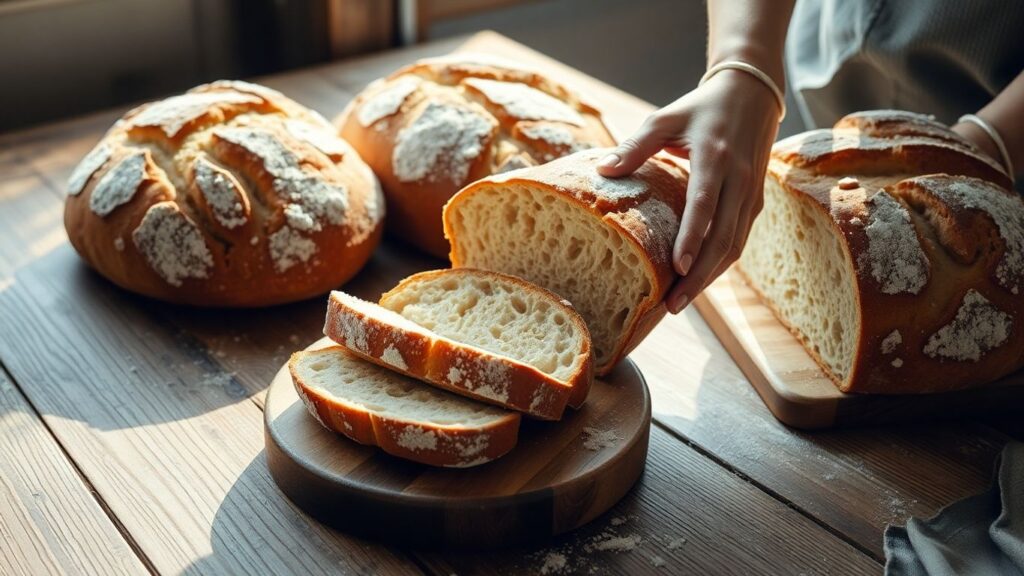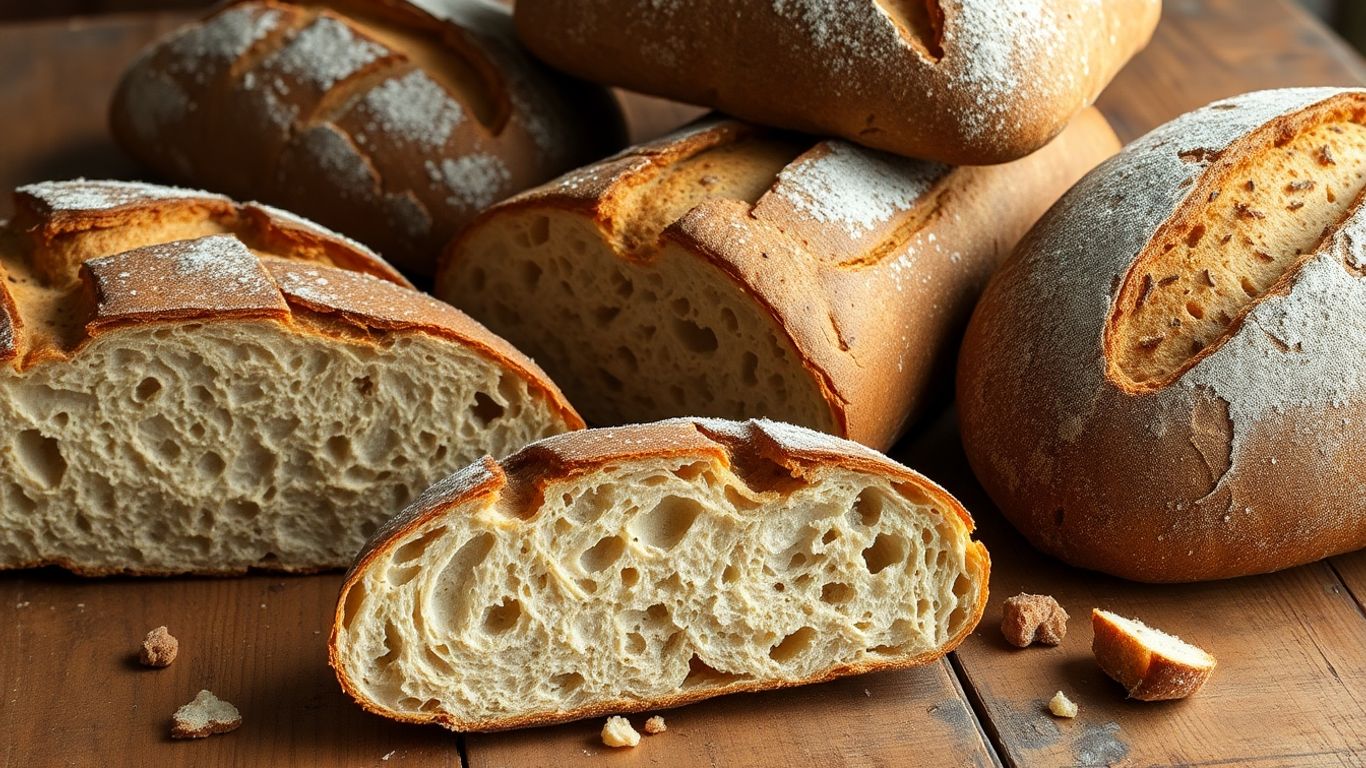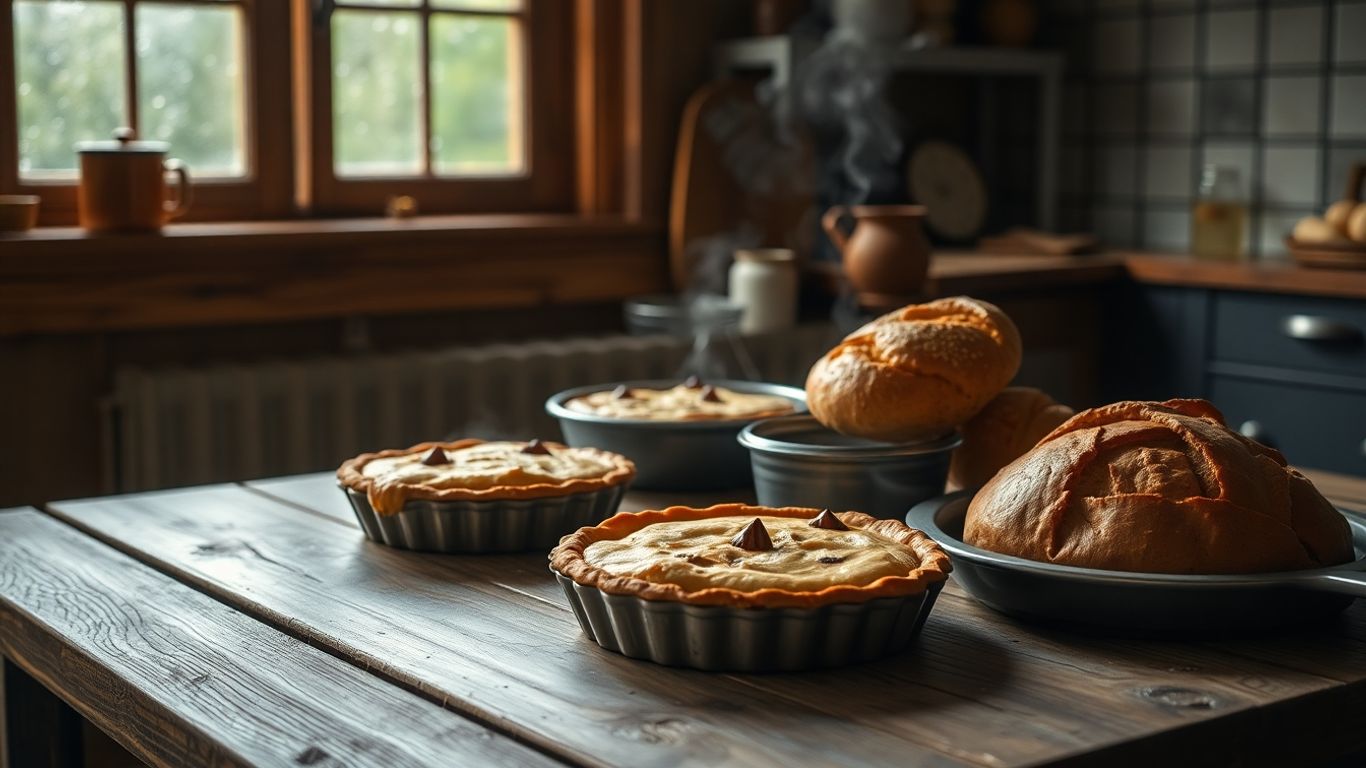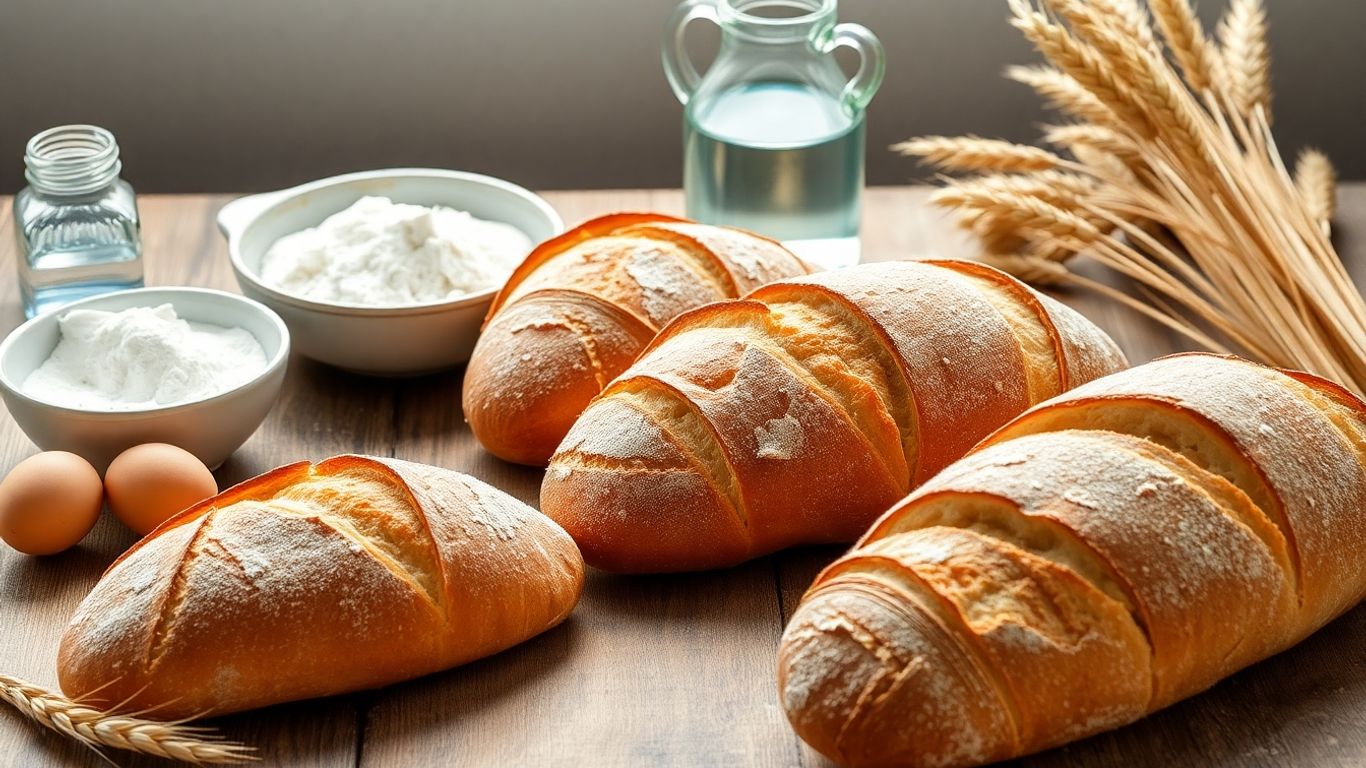Alright, let’s be honest – there are loads of sourdough myths floating around, especially about Devon bakers. Some folks think sourdough is a hipster thing from London, others believe it’s impossible to make, or that it’ll always taste like you’ve bitten into a lemon. But if you ask any baker in Devon, they’ll tell you a different story. Let’s clear up some of these sourdough myths Devon bakers wish you’d stop believing.
Key Takeaways
- Sourdough isn’t just a city trend – Devon has a long history with it and uses local ingredients.
- Making sourdough at home isn’t as hard as people say, and it doesn’t have to taste super sour.
- Not every health claim is true, but sourdough can be easier on your gut and sometimes better for those with gluten sensitivities.
Why Sourdough Isn’t Just A London Trend

Sourdough might be buzzing around London food markets and influencer feeds, but it’s much more than some urban fad. Down here in Devon, we’ve been baking sourdough for generations – long before it was trendy on social media. If you think all the action is in the city, think again.
Devon’s Rich Heritage Of Sourdough Baking
You’d be surprised how deep the roots of sourdough go in Devon. The county’s been quietly making some of the best loaves for ages, carrying on old techniques that haven’t changed much in decades. Local bakers will tell you their grandmothers (and even earlier) passed down family starters along with stubborn advice about dough temperature and feeding schedules.
- Traditional recipes rarely use commercial yeast – it’s all about the natural, slow fermentation.
- Many Devon bakeries still maintain their original starters, some rumoured to be older than a few local pubs.
- Sourdough here isn’t a conscious ‘trend’ – it’s simply how bread’s always been made.
There’s a quiet confidence about sourdough bread in Devon: it’s not about showing off, just baking bread that’s worth savouring – fresh, warm, and honest.
Importance Of Local Ingredients
You know what really sets Devon sourdough apart? It’s the local ingredients. Devon flour, water, and even salt have a character you just can’t fake or import. Here, bakers actually know the farmers who grow their wheat. That makes a difference you can taste, honestly.
- Freshly milled, locally-grown flour boosts flavour and connection to the land.
- Soft West Country water helps fermentations tick along nicely.
- Community-run saltworks on the coast supply sea salt, sometimes gathered just miles from your breakfast table.
There’s a natural pride in using what’s grown and produced locally. So, next time someone says sourdough is just having a moment in London, remind them that in Devon, it’s never been a trend – it’s our daily bread.
Common Sourdough Myths Devon Bakers Dispel

Devon’s bakers have heard every myth and tall tale about sourdough going. They roll their eyes whenever someone makes dramatic claims about how tricky it is, or insists it’s supposed to taste like vinegar. Let’s set a few things straight, from the folks who spend every morning with flour up their arms.
Is Sourdough Really Difficult To Make?
Here’s the short answer: No, not really. Most people just like to make it sound much harder than it is. Of course, there’s a knack – getting your starter going for the first time might take a few attempts, but so does learning to ride a bike. Once you’ve cracked it, making sourdough can fit easily into your week. Locals here in Devon have been turning out loaves for generations without fancy gear or endless fuss:
- All you need is flour, water, salt, and a bit of patience.
- You don’t need a fancy mixer or special oven; a regular kitchen will do.
- Most of the ‘work’ is waiting for dough to rise, not non-stop kneading.
If your first loaf isn’t perfect, don’t panic – it’s bread, not a maths exam. Every loaf teaches you something new.
Does Sourdough Always Taste Sour?
Let’s clear this one up. The name sourdough does not mean the bread should make you wince. In fact, a well-baked loaf from a good Devon bakery is rarely very sharp. Fermentation can bring more depth of flavour, which isn’t always about tartness. Here’s what actually shapes the final taste:
- Starter age and how you feed it – fresh, bubbly starters generally give a gentler flavour.
- Fermentation time – longer isn’t always ‘more sour’. Bakers balance time for deeper flavour, not just tang.
- Local grains – Devon flour gives different, often milder notes than other regions.
| Myth | Reality |
|---|---|
| All sourdough is tangy | Most is mild or nutty |
| Only experts can make it | Anyone can learn, truly |
| Needs pricey ingredients | Local, basic is often best |
So if you’ve been put off because someone told you sourdough is a major project, or that you’ll end up with bread that tastes like gone-off cider, trust the locals instead. They know better.
The Truth About Sourdough Health Claims In Devon
Alright, here’s the deal: sourdough gets all sorts of health halos in Devon, but not everything you hear is spot-on. Let’s clear up the facts from the wishful thinking, shall we?
Sourdough And Gut Health
You’ll hear people say sourdough is a magic potion for your gut.
- The natural fermentation process does help break down some gluten and phytic acid, making sourdough possibly easier to digest than standard bread.
- Sourdough contains lactic acid bacteria, which can improve the bread’s shelf life and flavour, but it’s not exactly a probiotic food. Most of those friendly bacteria mostly die during baking.
- Some folks reckon sourdough helps with bloating – which can be true, but it really depends on your own gut.
So, yes, sourdough is easier for some guts, but don’t expect it to fix everything.
Eating sourdough won’t replace yoghurt or kimchi when it comes to living microbes, but your tummy might just thank you for choosing it over supermarket sliced white.
Sourdough For Gluten Sensitivities
This one comes up at nearly every Devon farmers’ market—“Is sourdough gluten-free?” The short answer: no.
- Sourdough can reduce gluten content thanks to long fermentation, but it’s not safe for those with coeliac disease.
- Some people with mild gluten sensitivity find they don’t react so badly to traditional sourdough, thanks to that gentle ferment.
- There are gluten-free sourdoughs out there, but always ask what flour the baker’s used.
Here’s a table to help sort out the facts:
| Type | Gluten Content | Suitable for Coeliacs? | Usual Main Ingredient |
|---|---|---|---|
| Traditional white sourdough | Medium to High | No | Wheat |
| Rye sourdough | Medium | No | Rye (contains gluten) |
| Gluten-free sourdough | None or Trace | Usually, but check | Rice, maize, buckwheat, etc. |
In the end, sourdough’s not a cure-all, but when it’s made by a good Devon baker, it’s still a treat to enjoy. Your gut and taste buds might just agree, especially if you manage to nab a warm slice straight from the oven while nobody’s looking.
Curious if sourdough bread is really healthier? You might be surprised by what we found out in Devon. Want to learn more about how sourdough can fit into your daily meals? Visit our website for easy tips and honest answers!
Wrapping It Up: Sourdough Isn’t That Mysterious
So, there you have it. Sourdough isn’t some secret club with a list of rules only bakers in Devon know. Most of the stories you hear about sourdough are just that—stories. At the end of the day, it’s just flour, water, salt, and a bit of patience. If you fancy giving it a go, don’t let the myths put you off. Even if your first loaf looks a bit odd, it’ll still taste better than most shop-bought bread. And if you ever get stuck, just ask your local baker—they’re usually happy to chat about bread (sometimes for longer than you want!). So, roll up your sleeves, have a crack at it, and enjoy the process. Who knows, you might even start looking forward to your next slice of homemade bread as a proper treat.
Frequently Asked Questions
Is sourdough bread really hard to make at home?
Not at all! Lots of people think sourdough is super tricky, but it just takes a bit of patience. You don’t need fancy gear or special skills. Devon bakers say anyone can do it with a little practice and the right tips.
Does sourdough always taste really sour?
Nope! Sourdough can be tangy, but it doesn’t have to be super sour. The flavour depends on how you make it and how long you let it rise. Some Devon bakers make sourdough that’s mild and even a bit sweet.
Is sourdough okay for people with gluten sensitivities?
Sourdough is easier to digest than regular bread for some people, but it’s not gluten-free. If you’re coeliac, you still need to avoid regular sourdough. But some folks with mild sensitivities find sourdough a bit gentler on their stomach.







